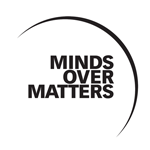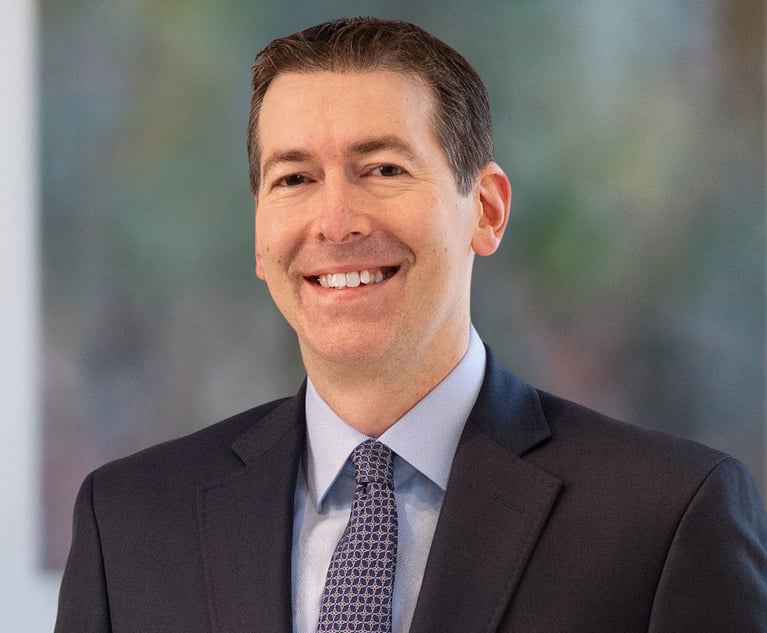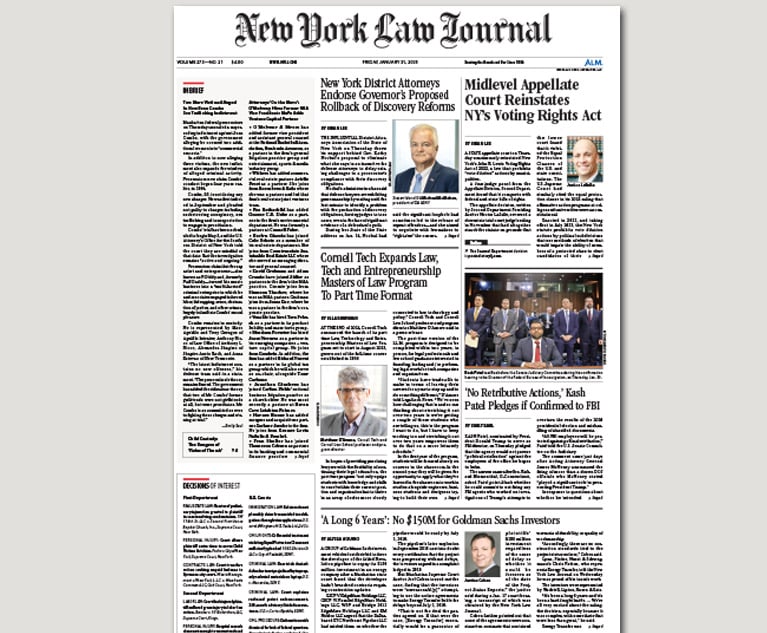Legal Industry Has Been Slow to Come to Terms With Destructive Tendencies on Mental Health
The biggest problems arise when more senior generations of lawyers say, "'this is a tough, stressful profession. I survived it, you should too,'" said Dan Lukasik, founder of LawyersWithDepression.com, and director of the Workplace Well-Being for the Mental Health Association in Buffalo, New York.
May 31, 2019 at 10:52 AM
9 minute read
The original version of this story was published on Law.com
 Photo: Shutterstock
Photo: Shutterstock
When it comes to attorney wellness, the legal profession has been slow to come to terms with its own self-destructive tendencies—including some, like overworking, that lawyers have long tolerated or even celebrated.
 But major forces in the profession are now working to reform aspects of the industry that experts blame for undermining lawyers' mental health.
But major forces in the profession are now working to reform aspects of the industry that experts blame for undermining lawyers' mental health.
Faced with growing evidence that lawyers are highly vulnerable to depression and substance abuse, the American Bar Association created a working group to advance well-being in the legal profession, and last year it issued a call for legal employers to adopt a seven-point framework to improve mental health in the law. Over 100 have pledged to do so.
Major U.S. and global law firms, meanwhile, are increasingly promoting their own initiatives to support attorney health, and many have created staff positions focused on lawyer wellness.
“There's a lot happening and a lot of it is really wonderful,” said Eileen Travis, director of the New York City Bar Association's Lawyer Assistance Program. She noted the wellness programs that some firms have implemented and that several have hired in-house psychologists.
Still, lawyers and health professionals said, meaningful change will require industry leaders to do more than sign pledges and make superficial changes, and to question the underlying culture of the profession.
“What everyone would like to see is that the level of stress, the level of demand doesn't get to that point where you have lawyers walking around with all these problems,” Travis said.
'Paradigm Shift' Needed
Rebecca Simon, a law professor and a co-founder of the Mindfulness, Stress Management and Peak Performance Program at the University of Southern California Gould School of Law had a striking name for the pattern taking place in the legal profession: “hazing.”
“Law schools and Big Law haze law students and new legal professionals into dangerous mindsets,” Simon said, and “destructive behaviors.”
Simon's co-founder, Jarrett Green, who also provides mental health consulting to law firms, said these behaviors—neglecting one's own personal needs and equating self-care with weakness—are harmful both personally and professionally, as stress and exhaustion impair cognitive ability. But lawyer culture has largely ignored that fact.
“It is somehow a badge of honor to violate our bodies and physiological needs, and that it makes us a more dedicated and impressive lawyer,” Green said.
Dan Lukasik, founder of LawyersWithDepression.com, and director of the Workplace Well-Being for the Mental Health Association in Buffalo, New York, said taking responsibility for one's own health only goes so far in that kind of environment.
“There's a limit to that if you work in a workplace culture where those messages aren't supported, or the exact opposite” is praised, Lukasik said. The biggest problems arise when more senior generations of lawyers say, “'this is a tough, stressful profession. I survived it, you should too,'” he said.
Professionals who have closely examined the mental health effects of lawyering said the increased conversation in recent years is encouraging, but they're skeptical that industry leaders will make all the changes needed to truly improve lawyers' health.
Lukasik suggested that some firm leaders interested in mindfulness seem to be motivated by the prospect of squeezing more productivity out of their lawyers. But they are unwilling to change fundamental flaws in their firm culture that affect mental health more deeply—their efforts are “window dressing,” he said.
Tyger Latham, a clinical psychologist in Washington, D.C., whose clients include many lawyers, noted that the legal profession has increased its conversation around substance abuse in particular. But focusing on alcohol and drug use in a vacuum could stymie meaningful progress, he said. “The alcohol and drugs is symptomatic of a greater issue,” Latham said.
“What really is needed is a paradigm shift in the culture of the legal profession.”
Abandoning Harmful Norms
No matter the motivation for improving lawyer well-being, mental health professionals said it does not have to come at the cost of destroying profitability and doesn't mean reworking the entire legal industry model from scratch.
Dr. Shelby Harris, a psychologist who specializes in behavioral sleep medicine, said firms and clients will likely benefit if their lawyers are encouraged to take care of themselves.
“When we look at actual data, when we look at people's productivity, their ability to multitask, they're way better when they've slept,” Harris said.
But, as discussed earlier in this series, that requires taking a certain amount of time each day to detach from work, so rest and sleep is not interrupted by periodic email checks or work-related phone calls. Individuals must have the discipline to do that, and legal employers have to stick by the same principle.
The ”I'll sleep when I'm dead” attitude is beginning to lose hold of society at large, Harris noted. But Green, of the mindfulness program at USC Gould, said it still has a hold on many within the legal profession.
“This kind of power-through culture is killing the legal industry. It's literally killing humans as well,” he said. “It comes from the false, ingrained belief that it means you are a hard-core, dedicated lawyer.”
Availability at all costs, and that feeling of being constantly on-call, aren't just a result of increased technological access, even if that's a contributor. The legal profession, and the dynamic between lawyers and their clients, play a special role, mental health professionals said.
Dr. Elizabeth Tillinghast, a former practicing lawyer who is now a psychiatrist in New York, said lawyers are forced to inhabit an odd dichotomy of personas early on in their careers.
“Associates are taught basically that they have to be very aggressive on behalf of the client, but you have to be completely submissive and obedient to anyone higher up in the firm,” she said. “You're really not taught to represent yourself.”
It's a dynamic that has stayed in place because it works well for those at the top, Tillinghast said, thought she doubts it's something senior lawyers even think about. And it can have major side effects.
“It sometimes makes people lose track of themselves,” Tillinghast said.
But in a supportive work environment, lawyers can regain autonomy over their time.
Katie Herzog, a former psychology professor who consults law firms and other businesses on training and management, said she coaches lawyers on making small changes to their behavior. In one case, for example, she encouraged a lawyer to simply take a moment before reacting to a request or comment: “Slowing themselves down just for a nanosecond.”
“The bottom of it is they can choose their pace. They can take responsibility for their pace and not only be reactive,” Herzog said. “People spend a lot of time on things that seem urgent, but aren't important.”
Facing Facts
Changing harmful norms in the legal profession may depend on two cornerstones of the profession: evidence and relationships.
Green said it's ironic that in their work, lawyers rely on hard facts, but they habitually go against science as it relates to unhealthy work practices—namely, working around the clock.
“We're an industry that's obsessed with evidence … yet in their own lives, they're violating all of the evidence,” he said.
But—perhaps contrary to the fears of many industry leaders—the hard facts don't necessarily point to changing the entire legal business model.
Green said proposing a total overhaul, such as eliminating the billable hour, is actually “one of the worst things we can do to incite or catalyze change.” Doing so, he said, causes industry leaders to equate mental health efforts with an attack on revenue generation.
“You don't have to remove the billable hour requirement to increase well-being,” Green said. “We can become a lot healthier within it. We can have a lot less work time, while still hitting the goal.”
As for the relationship factor, Herzog said law firms should be seen as “professional families.”
Years ago, many firms actually operated that way, she noted. It was easier for individuals to make deep connections and feel valued, before rapid lateral movement and industrywide consolidation made firm cultures more disparate.
Getting back to that “has to be systemic,” Herzog said.
Lawyers can educate themselves on their own wellness needs, but making changes to fit those needs requires confidence—the lack of which has become a huge problem in the legal profession, she said, as both a cause and effect of loneliness among lawyers.
Some attorneys with “star quality” are an exception—they've earned enough positive reinforcement beginning early in their careers that they feel comfortable asking for the things they need, Herzog said. But most are going to require mentorship to gain self-esteem, and take responsibility for their health.
That means firms need to provide meaningful and personal training on a mandatory basis, and present it as a resource and opportunity, not as remediation for poor performers, Herzog said. Within those mentoring relationships, lawyers have to be able to express their personal concerns without worrying about the impact on their careers, she said.
“Management has to send a message about the values of the firm,” Herzog said. “That we are a professional family and we care about each other, and we respect each other.”
An upcoming article in Law.com's Minds Over Matters project will examine the ways large law firms have mobilized—or not—to address attorney mental health issues.
This content has been archived. It is available through our partners, LexisNexis® and Bloomberg Law.
To view this content, please continue to their sites.
Not a Lexis Subscriber?
Subscribe Now
Not a Bloomberg Law Subscriber?
Subscribe Now
NOT FOR REPRINT
© 2025 ALM Global, LLC, All Rights Reserved. Request academic re-use from www.copyright.com. All other uses, submit a request to [email protected]. For more information visit Asset & Logo Licensing.
You Might Like
View All
Law Firms Expand Scope of Immigration Expertise Amid Blitz of Trump Orders
6 minute read

Orrick Hires Longtime Weil Partner as New Head of Antitrust Litigation
Trending Stories
- 1LSU General Counsel Quits Amid Fracas Over First Amendment Rights of Law Professor
- 2An Eye on ‘De-Risking’: Chewing on Hot Topics in Litigation Funding With Jeffery Lula of GLS Capital
- 3Arguing Class Actions: With Friends Like These...
- 4How Some Elite Law Firms Are Growing Equity Partner Ranks Faster Than Others
- 5Fried Frank Partner Leaves for Paul Hastings to Start Tech Transactions Practice
Who Got The Work
J. Brugh Lower of Gibbons has entered an appearance for industrial equipment supplier Devco Corporation in a pending trademark infringement lawsuit. The suit, accusing the defendant of selling knock-off Graco products, was filed Dec. 18 in New Jersey District Court by Rivkin Radler on behalf of Graco Inc. and Graco Minnesota. The case, assigned to U.S. District Judge Zahid N. Quraishi, is 3:24-cv-11294, Graco Inc. et al v. Devco Corporation.
Who Got The Work
Rebecca Maller-Stein and Kent A. Yalowitz of Arnold & Porter Kaye Scholer have entered their appearances for Hanaco Venture Capital and its executives, Lior Prosor and David Frankel, in a pending securities lawsuit. The action, filed on Dec. 24 in New York Southern District Court by Zell, Aron & Co. on behalf of Goldeneye Advisors, accuses the defendants of negligently and fraudulently managing the plaintiff's $1 million investment. The case, assigned to U.S. District Judge Vernon S. Broderick, is 1:24-cv-09918, Goldeneye Advisors, LLC v. Hanaco Venture Capital, Ltd. et al.
Who Got The Work
Attorneys from A&O Shearman has stepped in as defense counsel for Toronto-Dominion Bank and other defendants in a pending securities class action. The suit, filed Dec. 11 in New York Southern District Court by Bleichmar Fonti & Auld, accuses the defendants of concealing the bank's 'pervasive' deficiencies in regards to its compliance with the Bank Secrecy Act and the quality of its anti-money laundering controls. The case, assigned to U.S. District Judge Arun Subramanian, is 1:24-cv-09445, Gonzalez v. The Toronto-Dominion Bank et al.
Who Got The Work
Crown Castle International, a Pennsylvania company providing shared communications infrastructure, has turned to Luke D. Wolf of Gordon Rees Scully Mansukhani to fend off a pending breach-of-contract lawsuit. The court action, filed Nov. 25 in Michigan Eastern District Court by Hooper Hathaway PC on behalf of The Town Residences LLC, accuses Crown Castle of failing to transfer approximately $30,000 in utility payments from T-Mobile in breach of a roof-top lease and assignment agreement. The case, assigned to U.S. District Judge Susan K. Declercq, is 2:24-cv-13131, The Town Residences LLC v. T-Mobile US, Inc. et al.
Who Got The Work
Wilfred P. Coronato and Daniel M. Schwartz of McCarter & English have stepped in as defense counsel to Electrolux Home Products Inc. in a pending product liability lawsuit. The court action, filed Nov. 26 in New York Eastern District Court by Poulos Lopiccolo PC and Nagel Rice LLP on behalf of David Stern, alleges that the defendant's refrigerators’ drawers and shelving repeatedly break and fall apart within months after purchase. The case, assigned to U.S. District Judge Joan M. Azrack, is 2:24-cv-08204, Stern v. Electrolux Home Products, Inc.
Featured Firms
Law Offices of Gary Martin Hays & Associates, P.C.
(470) 294-1674
Law Offices of Mark E. Salomone
(857) 444-6468
Smith & Hassler
(713) 739-1250







